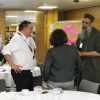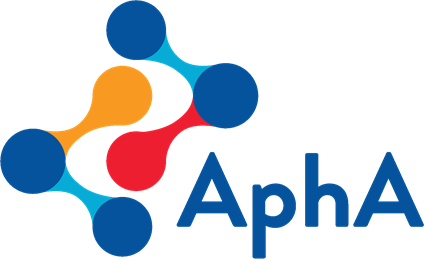
MASHnet is proudly part of The Association of Professional Healthcare Analysts

MASHnet is proudly part of The Association of Professional Healthcare Analysts


Analytics and operational research (OR) methods have totally transformed almost every other sector, but have not yet been widely adopted in the NHS. The question is: why not, and what can we do about it? PLETHORA is a 12-month project designed to address this question. The project is funded by the Health Foundation and led by Martin Pitt from NIHR CLAHRC SW Peninsula, University of Exeter. It grew from a national workshop held at the Health Foundation’s London headquarters in October 2016, and began in April 2017. PLETHORA has a Steering Committee of thirteen MASHnet members, of whom only six are academics: the others are NHS clinicians, analysts and managers, and the Head of OR at NHS England (see following page). It also has an Advisory Circle of around fifty people from a very wide range of backgrounds. In addition to the Health Foundation funding, the project has strong support from AphA (the Association of Professional Healthcare Analysts) and the UK OR Society.
The principal aim of PLETHORA is to develop and take forward an action plan for the effective use of advanced analytics and Operational Research methods to improve the delivery of health and care services in the UK. To achieve that aim, four Working Groups were established.
The aims of WG1 include undertaking a structured training needs analysis of the NHS, drawing on the experience of a range of stakeholders, to develop a full understanding of any shortfalls and how these need to be addressed; and developing an outline curriculum for teaching OR skills to healthcare professionals.
In conjunction with WG2, on September 7-8th 2017 WG1 held a residential workshop in Gloucester whose aim was to survey current activities and local initiatives which support such training, and hence facilitate the implementation of advanced analytics and OR.
The aims of this WG include conducting a rapid literature and information search to survey current engagement initiatives between UK research and NHS institutions, and then outlining a plan of action and making recommendations for improving such engagement, drawing on the experience of existing schemes.
This WG has three streams, each addressing a separate strand of this broad issue.
Leads: Paul Stroner, Stephen Lorrimer
This WG is primarily concerned with improving the professional status of NHS analysts, and retaining analytical expertise within the NHS by developing a recognised career pathway right up to senior management level. A related aim is increasing analytical skills and representation among senior decision makers, based on the hypothesis that the effective use of OR/analytics will only be sustained when there is sustained demand for analysis from Board-level management. In turn this requires senior decision makers who have access to and experience in high quality analysis.
Leads: Sean Manzi, Mike Pearson, Paul Harper
The focus of WG3b is on the barriers that researchers and analysts face in obtaining data. The aims of this WG are to outline the requirements for data access that would facilitate effective health care modelling research and analysis, consequently leading to improved patient care and outcomes, and to assess how this could be enabled.
Lead: Paul Harper
The aims of this WG are to increase the visibility of OR/Analytics within RCUK and ultimately, increase research funding in this area.
Leads: Sally Brailsford, Andrew Fordyce, David Paynton
The aim of this WG is to organize a national one-day conference to showcase the findings from the PLETHORA project. In addition to keynote talks by well-known speakers, each of the three other Working Groups will lead interactive breakout sessions to explore their findings with participants. The key purpose of the conference is to address the question: What next? We know that the wider health OR community is already interested in the project, but the aim of the conference is not merely to “preach to the converted” but also to reach out to a wider audience and thereby educate and excite a new set of decision-makers and clinicians about OR/analytics.
The conference will take place on May 16, 2018 in central London. In addition to the Health Foundation funding, the UK OR Society is providing financial support and AphA are providing admin support.
| Martin Bardsley | The Health Foundation |
| Sally Brailsford | Southampton Business School, University of Southampton |
| Thierry Chaussalet | Westminster University |
| Sonya Crowe | Clinical OR Unit, University College London |
| Andrew Fordyce | Torbay Hospitals Trust |
| Garry Fothergill | Sheffield Teaching Hospitals NHS Foundation Trust |
| Abraham George | Consultant in Public Health, Kent County Council |
| Paul Harper | School of Mathematics, Cardiff University |
| Stephen Lorrimer | Head of OR, NHS England |
| David Paynton | Royal College of General Practice |
| Martin Pitt | NIHR CLAHRC SW Peninsula, University of Exeter |
| Paul Stroner | NHSi and the Association of Professional Healthcare Analysts (AphA) |
| Christos Vasilakis | Management School, Bath University |
| Jenny Morgan | Performance Analysis Manager, NHS Wales |